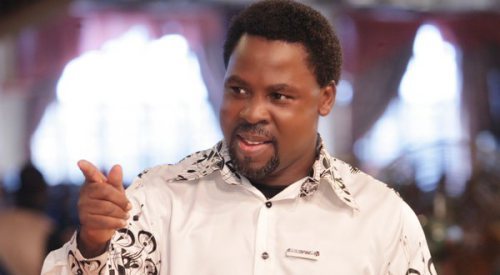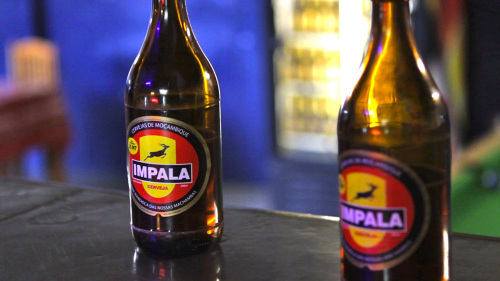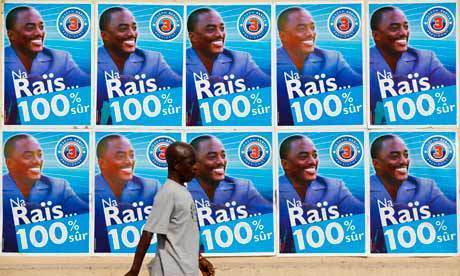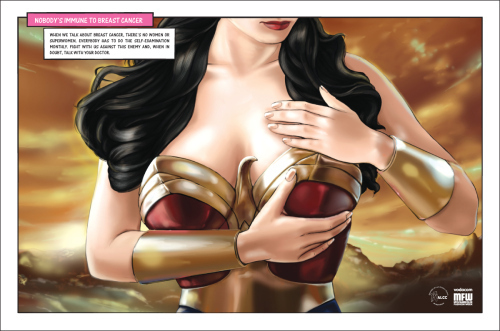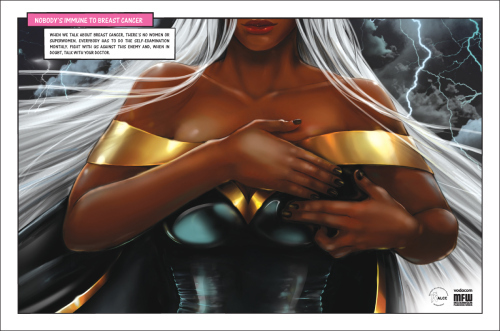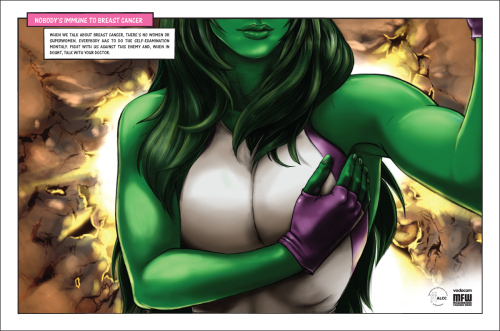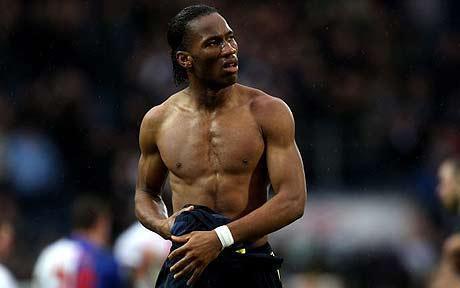Sean Jacobs's Blog, page 582
December 15, 2011
The Prophet
By now you've probably watched the (British) Channel TV documentary film about Nigeria's millionaire preachers–the fake healings, buckets full of money, police escorts, mall openings and the flash. I watched it last night. Nigerian blogs, not surprisingly, have focused on theological teachings thrown up by the documentary. (One of the preachers, Dr Fireman, when quizzed about his ostentatious show of wealth, responds: "Jesus was rich and had an accountant who followed him around.") Notably absent from the program were the really rich ones–compiled in a list by a Forbes blogger earlier this Fall– like David Oyedepo (estimated net worth of $150m), Chris Oyakhilome ($30-50m) and TB Joshua ($10-15m). Joshua is probably the most interesting (there's even a TB Joshua Watch online) and politically well connected.
Joshua claims to heal HIV/AIDS, cancer and paralysis at his Synagogue Church of All Nations in Lagos.
His found a willing audience amongst African elites.
In one celebrated case, Jaco van der Westhuyzen, a top rugby player from South Africa traveled to Lagos with a knee injury and claimed to be healed by TB Joshua. Two other national rugby team players followed and stopped treatment or using their medicine. But after visiting Joshua's church in Nigeria — Ruben Kruger and Wuim Basson — they died of their cancers. Their failure to get well is usually rationalized as either their lack of faith. (In Basson's case, Joshua even claimed to communicate with the dead Basson.) South African television has reported stories of white South Africans traveling in large groups to Joshua's church for healing.
As for the politically connected, they include Ghanaian president John Atta Mills, of whom it is claimed that "Joshua had prophesied his victory in the Ghanaian polls, specifying there would be three elections and the results would be released in January." Atta Mills has described Joshua as a mentor. A Zimbabwean newspaper reported that prime minister Morgan Tsvangirai visited Joshua's church in September. So have other leaders of Tsvangirai's MDC movement as well as Mugabe's ZANU-PF. Some were hoping it would give them an edge in party political contests. The same newspaper mentioned a few other high profile guests: former presidents Frederick Chiluba (Zambia), Pascal Lissouba (Congo-Brazzaville), André Kolimba (Central African Republic), Omar Bongo (Gabon) and Zulu King Goodwill Zwelithini (who came to testify about his "daughter's healing from epilepsy"). The president of Zimbabwe's football association Cuthbert Dube also claimed to be healed by Joshua.
Not every governing elite is as welcoming. Cameroon has banned Joshua.
But probably the most curious recent guest at Joshua's church has been Winnie Mandela, seen in this recent video, below, with Joshua's Emmanuel TV referring to herself as "the grandmother of Africa," blaming everything on modernity (except Christianity of course) and suggesting Africa needs "democracy of a special type":

Given some of our obsession with South Africans, we keep wondering why do South Africans travel to Nigeria, when they have their own miracle-making farmer at home?








Introducing the Toto 'Africa' Meme
Watch out in the new year for our meme of covers of Toto's "Africa." We've been wanting to start this for a while. It's bad music. The best deconstruction of the song's musical quality is by humorist Steve Almond. But you can't stop tapping your feet or humming to it. We're amazed by the wide variety of bands, and genres who have covered this song. And we can attest to its resilience as a piece of media about Africa — including the video. Type "Africa" into Youtube and see what comes up near the top. Here's a taste of what's to come. Minnesota indie rock band Low does a cover for the A.V. Club. This version may be the high point of the meme.








Andrew Dosunmu's 'Restless City'
Andrew Dosunmu is always on the move. I first met him here in New York City when he had just returned from South Africa where he had shot a few episodes for the second season of the popular TV series "Yizo Yizo." (At the time, I was organizing a film festival.) Shortly afterwards, by chance, I ran into him on the subway. He was plotting to make a feature about female bank robbers in Lagos. Then I got invited to a reading for a story about complicated family relations in an African immigrant clan in the Bronx that he had workshopped at Sundance Lab. Neither project came off. Which is fine, since that frustration led him to take the initiative and make his most recent film, "Restless City." I finally got to see it this summer (at the Urban World Film Festival). The story, part American dream narrative, revolves around a young West African immigrant, Djibril, who lives in Harlem, trying to start his record career, while selling CDs and delivering packages and mail on his moped. Djibril (played by Sy Alassane) falls for a beautiful woman, Trini (Nicole Grey), who also happens to be a prostitute. Djibril wants to rescue her from her pimp, with devastating consequences. But the narrative is only part of the story. This film is also about how New York City is framed. This is a beautiful but hard city for the growing African immigrant population who reside in its margins. And the city is a star of the film; whether the small uptown apartments, subway cars, dance clubs, hairdressers, etcetera. The actors speak in Wolof, English, French and Yoruba. The pace is slow but engaging, there's a certain lyricism to it, it's beautifully shot (that's the work of director of photography Bradford Young), it is stylish (the costume designer is Mobolaji Dawodu of The Fader) and it has a soundtrack of Don Cherry's jazz.
In my book it is the best African film this year.
As usual Andrew is on the move. Word is he is already working on his next film. Turns out it's the film I mentioned above about that immigrant family, now titled "Ma'George." Isaac de Bankole and Angelique Kidjo are among those in the cast and Bradford Young will be the d.p.
* We have some top 10-lists coming next week, but I wanted to get in a word first.








The Swazi Bull
We were wondering whether the lurid tales of bestiality allegedly involving the King of Swaziland that are circulating on the internets — on Facebook and Scribd, among others, and apparently printed and handed out in the kingdom — would be picked up by the mainstream. Then the Southern Africa Report, the Johannesburg-based weekly political and economic analyses brief, ran a piece on recent economic and political developments in Swaziland; and for some strange reason, the writers chose to open with a direct reference to the aforementioned stories:
For traditionalists, King Mswati III's troubled year, the rapid collapse of Swaziland's economy and the surge in pro-democracy protests has little to do with South Africa's revision of [the regional] Southern African Customs Union (Sacu) disbursements late last year. It has its roots, instead, in an unfortunate variation in the mystic, and private, Incwala ceremony last December.
The ceremony is cloaked in secrecy and marks the king's return to public life after a period of withdrawal and spiritual contemplation.
Among its highlights is a symbolic demonstration by the king of his power and dominance in a process involving his penetration of a black bull, beaten into semi-conscious immobility to ensure its compliant acceptance of the royal touch. The royal semen is then collected by a courtier and stored, for subsequent inclusion in food to be served at Sibaya – traditional councils – and other national forums.
But last year's selected bull, according to a recent account from a whistle-blowing Incwala initiate, objected strongly, and threw off Africa's last absolute monarch.
The symbolism was not lost on those who witnessed it. Mswati survived popular attempts to remove him, and the near-collapse of the Swazi economy in 2011 – but does not intend to risk another year like it.
Southern Africa Report then abruptly returned to business — reporting about customs unions, economic indicators and the firing of judges. They left out other widely circulated sexual lore involving Mswati: public sex with his wives and being licked all over by a snake. The source of this story is one Sithembiso Simelane, identified as "a former regiment, who has since joined the revolution." Simelane's account was posted by 'Pius UnSwazi Rinto' (based in Durban) who calls himself a member of "The people of the Future Republic of Eswatani" which hopes "to bring true democracy in Swaziland."
Since then, this incendiary detail about Mswati's sexual proclivities has been republished on a range of sites (including aggregator sites like Allafrica.com and in some cases cut and pasted without any attribution). We thought it odd that a news publication would publish such allegations based on one source and a few repostings on social media sites.
Anyway, for Swazi watchers, there's a lot more playing here. It's a mix of politics, religion and exile. Read the full account (and the comments). It's quite something. Swazi police has since jumped onto the 'testimony' with "an appeal to the nation for assistance in identifying and arresting certain individuals who are printing and distributing pamphlets in business and other public areas" (that's Scribd and Facebook). None of these official appeals stopped 80,000 'boys' from attending the ritual this year. All of them were presented by His Majesty with new sneakers, which probably had something to do with the popularity of the event.
We are neither prurient teenagers nor prudes at AIAC, so we looked at these leaked stories as media critics and cultural scholars. Having read the classic anthropological papers about the Incwala ritual, two things in this account by Sithembiso Simelane struck us. New elements in his testimony are: (1) the part about the snake ("the belief is that it cleans him of all the troubles he faced this year so that he emerges a new and strong person the next year") and (2) the actual penetration — by the King — of the comatose bull (usually an ox). If true, these are recently introduced parts in the ritual. Otherwise, previous anthropologists never included these particular details in their descriptions, or they were oblivious to them. With the Swazi media now barred from covering this year's ritual, we'll have to rely on individual accounts — be it those from apostate regiment members or future anthropologists.








The business of selling beer
In the last two decades, SABMiller become one of the world's biggest beermakers by buying domestic labels and marketing them locally. They've hired anthropologists, historians, and sociologists to help sell 'local intimacy' for 200 plus brands in 75 plus countries and demonstrated that regional branding can be competitive on a global scale. Their domesticating efforts in African, Asian, and Latin American markets have given the London-based multinational a reputation for daring. But now that SABMiller has launched the first ever commercial cassava-based beer with its subsidiary in Mozambique, there's just one question—why is Impala Beer's branding so bad?
The world's first public video for cassava-based beer starts with a close up of earnest grimace (0:12min mark)
SABMiller has been accused of tax evasion in India and five African countries, including Mozambique. Since they've already negotiated out of Maputo's excise tax for all future production of cassava-based beer, SABMiller wants to sell this beer as though it were charity work.
At the very least, the video presents a very romantic vision of Impala's production model. It promises to improve the lives of subsistence farmers by providing a new reliable market for their small crops and amazingly, to make subsistence communities more self-sufficient. Business leaders know that Cervejas de Moçambique, the national brewery manufacturing the cassava product, already sold its contracts to big producers and started operating a year ago.
Is this romantic vision still tied to Max Weber's belief in a Protestant work ethic that justifies industry as a virtue in itself? An evangelical fervor for self-improvement through the consumption of commodities?
Impala is being marketed to poor people who don't buy other commercially distributed beers because they are too expensive.
The tropes in the ad are familiar: Show industrious-looking Africans. Show a guy (usually a white man) showing them what to do.
The problem is SABMiller is a multinational (well, very much a South African and British multinational, if you can make out the accents of its managers) in the business of selling beer, and beer is too laid-back for these tax-ass-saving moves.








The 'safest option' in Congo
For all the huffing and puffing in the West about the DRC's cooked elections — President Joseph Kabila "polled" 49% and the Electoral Commission, stacked with Kabila cronies, "gave" opposition candidate Etienne Tshisekedi 32% of the vote — there's a bottom line for elites. The Financial Times, in an editorial yesterday, gives it to us straight:
Britain funded this charade with £31m, the European Union with €47m, and the UN with $110m. They have all raised concerns. But the international community does not favour Mr Tshisekedi. Instead it is ready to choose the option perceived as safest: supporting the status quo.








December 14, 2011
Shameless Self Promotion
It's that time of year again. The students in my required Media and Culture course at The New School (I have a day job yes) just uploaded their final projects–a short documentary or commentary piece (limit under 5 minutes)–online. Here's one of them. Student Erik Luers debates the decision by mainstream media organizations to show (or inability to control the exhibition of) the gory images of the murder of Libyan dictator Muammar Gaddafi:








Music Break. Ghostpoet
Mike Skinner playing keys in this "improvised" video for Ghostpoet makes perfect sense. The online audience at home voted from multiple choices options in real time. It included a yeti.








Wonder Woman can beat breast cancer
The Mozambican Associação da Luta Contra o Cancer (ALCC) enlists female superheroes to raise awareness around breast cancer. If you can't read the small print copy: "Nobody's immune to breast cancer. When we talk about breast cancer, there's no women or superwomen. Everybody has to do the self-examination monthly. Fight with us against the enemy and, when in doubt, talk with your doctor." The local Maputo branch of a multinational ad agency designed the campaign. Here's a few:








Didier Drogba, Politician
Despite his brilliance as a footballer, a lot of people can't take footballer Didier Drogba serious. For starters, what's with that wet curl?
Seriously, though, the Drogba that emerges in a new BBC radio documentary (to be broadcast later today) that explores football's influence beyond the pitch, might change their opinion slightly. (Well, some people also just hate him because he plays for Chelsea.) The documentary is made by Christian Purslow, a former chief executive at Liverpool FC. He interviews a number of players, including Liverpool's Jamie Carragher, Patrick Vieira (formerly of Arsenal, Inter Milan and Manchester City), AC Milan midfielder Clarence Seedorf and of course Drogba. This comes in the wake of Drogba's appointment in September to Cote d'Ivoire's new Truth and Reconciliation Commission to represent the Ivorian diaspora. Then earlier this month he was awarded a global humanitarian award by a British sports organization.
Purslow has described Drogba as "eloquent, intelligent, and engaged." Drogba gets to talk about the now well-known story about "the unifying power of football if harnessed in the right way, citing the example of how football helped stop the civil war in his native Ivory Coast."
We had just qualified for the World Cup and all the players only wanted one thing – Ivory Coast to be united. The country was divided in two, but we knew we were calling people in the country and they were saying, 'When Ivory Coast is playing the country is united. People who don't [normally] talk to each other, when there is a goal they celebrate together.' We were trying to use this and send the message to our politicians to sit down and talk and try to find some solutions. I knew that we could bring a lot of people together. More than politicians. The country is divided because of politicians; we are playing football, we are running behind a ball, and we managed to bring people together.
Drogba also responds to critics of his political ambitions:
People want to say, 'Didier is going into politics, that this is too complicated for him'. But it's not, it's not. It's just a kid from Côte d'Ivoire who wants to help his country. I am not a politician, I will never be. But if I can help my country I will do anything. I'm not here to judge the ex-president or the new one. The only thing I can say is that the population suffered a lot. A lot of people have been killed. That's why it was necessary for us to speak. I've suffered from this war but it's easy for me to come out and say 'My village has been attacked' or 'This guy from my family died'. But what about the others? The other people who cannot talk. They all suffer.
Sources: BBC, Independent.








Sean Jacobs's Blog
- Sean Jacobs's profile
- 4 followers


